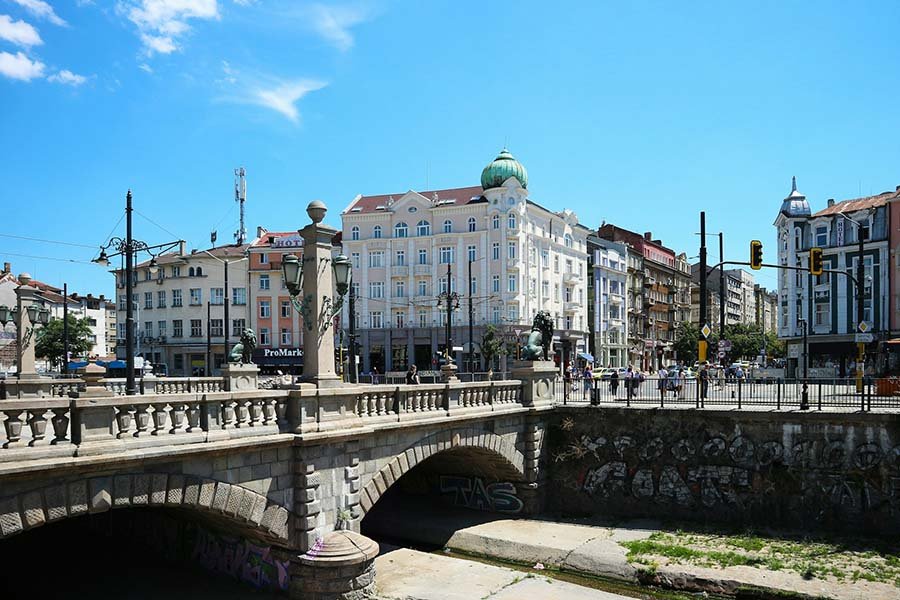
Photo: Unsplash
Amendments to Bulgaria’s Foreigners Act have been approved. The changes adapt European Commission directives and formalize the country’s participation in the Schengen Area. New rules have been introduced for various categories of migrants—from highly skilled professionals to students and remote workers, The Sofia Globe reports.
Digital Nomads
One of the most notable updates is a long-term residence permit for digital nomads. Foreigners who work remotely for employers outside the EU can now apply for a Bulgarian residence permit for up to six months—some sources mention up to one year.
Law firm Wolf Theiss notes the changes took effect on June 30, 2025. Digital nomads must not work for Bulgarian organizations or provide services to them. They must also prove annual income equal to 50 times the national minimum wage. According to Eurofast, the minimum wage rose on January 1 from BGN 933 to BGN 1,077. Accordingly, a digital nomad must earn BGN 53,850 (about €27,533) per year, or roughly BGN 4,487 per month (about €2,300).
The Red White Adventures portal adds that the digital nomad visa would in practice become available in late September or later, as the authorities allotted time to finalize program details. In addition to income, the following factors apply:
- citizenship – only non-EU nationals can apply, since EU residents do not need such a visa;
- work format – remote. Applicants must be employees of a company registered outside Bulgaria or self-employed freelancers. In both cases, they must prove stable income or a contract with a foreign firm;
- health insurance – a policy valid for the entire stay is required, ideally covering medical services and travel-related costs;
- housing – proof of a lease or reservation in Bulgaria is needed;
- criminal record certificate – required from the country of citizenship.
The passport must be valid for at least six months at the time of application. Additional documents include an employment contract or proof of self-employment, bank statements, and other papers requested by the migration authorities. The process has two stages. Applicants first apply for a long-stay Type D visa at a Bulgarian embassy or consulate in their home country. This visa allows entry and application for a residence permit under the Digital Nomad Visa program. Processing may take several months.
Other Changes
The law also covers other categories of foreigners. Foreign nationals representing overseas companies may obtain long-term residence provided they meet tax-transparency requirements and demonstrate annual turnover of at least BGN 100,000 (€51,129). For students, the amendments introduce the possibility of obtaining a one-year residence permit upon admission to a Bulgarian PhD program.
Employer obligations for hosting foreign workers have been tightened. Within seven days of a long-stay resident employee’s entry, employers must submit copies of the visa, health insurance, and other documents to the Interior Ministry’s Migration Directorate. Failure to meet deadlines may result in fines of BGN 200–1,000 (€102–511) for the employer and BGN 100–500 (€51–256) for the foreigner. In addition, all entrants must report their address within three days, except in the case of organized tourist trips.
Time spent by third-country nationals in Bulgaria now counts as time spent in the Schengen Area. For holders of an EU Blue Card issued by other EU countries, relocation procedures are simplified; family members can receive a 90-day residence authorization while their applications are processed.
Pros and Cons of Bulgaria for Foreigners
Life in Bulgaria is often considered more affordable than in Western Europe. Rents and groceries are cheaper, and the natural environment ranges from the Black Sea coast to mountain resorts. Advantages also include a mild climate and ample leisure options. Major cities—Sofia, Varna, Plovdiv—offer good infrastructure, coworking spaces, international schools, and private medical centers.
Realistimo points out the language barrier: outside larger cities, English is not widely spoken, and all official documents are in Bulgarian. Smaller towns may face transport and road issues and variable healthcare quality. Heating costs can be significant in winter. In addition, the prices of real estate, goods, and services are gradually rising—and this trend is expected to intensify as the country transitions to the euro in 2026.
Bulgaria’s flat tax rate is 10%, lower than in many European countries, but Montenegro does not tax digital nomads’ income: there you need to earn about €1,500 per month and hold around €15,000 in the bank. In Georgia, the rate starts at just 1% for individual entrepreneurs with small-business status. To qualify for residence, sole proprietors must show an annual turnover of at least GEL 50,000 (€15,700) or about GEL 4,167 per month (€1,305). In addition, Georgia has introduced a new residence permit for IT specialists—granted for three years—with a minimum income threshold of $25,000 over 12 months (€23,000) or about $2,100 per month (€1,932).
Read also:
Bulgaria Records a Surge in Foreign Workers, but 40% Move On to Western Europe
Bulgarian Property: Housing Overvalued by 10–15%
Bulgaria Sees Sharp Home Price Growth and Lower Rental Yields in 2025
Where to Find Property in Bulgaria Under €1,000 per Square Meter
Resort Property in Bulgaria: Growth, Risks, and 2025 Trends








